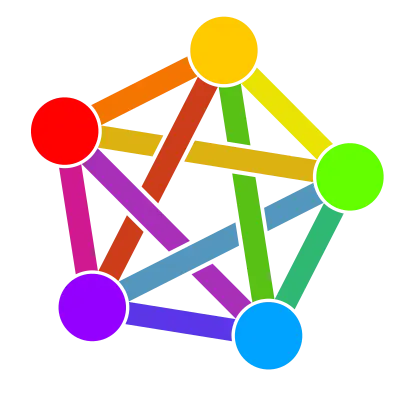I wouldn’t mind if EU made it mandatory for them to be. I really hate that I have to use Whatsapp because it’s the sole way I can stay in touch with people I must be able to contact.
I also wouldn’t mind “swapping” to contacting my friend via Discord if the federation was made so I could use a different means of contacting them such as Revolt.
I know Beeper exists, but you still need to have account with the platform you don’t like and in Whatsapp case’s, you need Whatsapp installed.


I did it too.
I closed my Facebook, Instagram, Signal, Skype, Telegram, and WhatsApp accounts, all at once.
That left the following choices for the others around me:
or the last option: an account on my newly installed, self-hosted Snikket (XMPP) server.
The vast majority opted for an account on my server, a few chose a 3rd party XMPP provider, and one wanted a Snikket server of his own (the best option for federation!).
The ones I lost contact with are all people I never really communicated with anyway, we just existed in each other’s contact lists on the aforementioned services.
It’s easier to switch people over to a alternative, federated platform than you think. Sure, you may not be able to make them move away from the monolithic platforms, especially WhatsApp, but you sure can get them to follow you to a better platform of your choice.
My argument to support that claim is that the vast majority of people are only on platform X or Y because someone else suggested it to them, not because they discovered it themselves.
My friends and family preferred that to not being able to chat with me anymore. Some of them, who also had/have each other on WhatsApp have started using their Snikket accounts between themselves too, as they started to become aware of the privacy implications of WhatsApp and Meta.
Snikket is very easy to install if you have general Linux knowledge, and their support is excellent. It takes more time to get a Linux machine set up (I use a Raspberry Pi), install Docker, and configure your DNS, than it does to install Snikket itself. They also offer a hosted service if you can’t or don’t want to self-host. What really sells Snikket is the easy invitation based onboarding process, which takes the hassle out of account creation and app installation (an obstacle for many non-technical people).
It is focussed on groups of people who already know each other, e.g. family, a group of friends, clubs, or communities, which removes the need for mutual friend requests. It does this through the concept of circles, which are essentially groups with their own associated contact lists. Anyone added to, say, the Family circle will automatically have the others in that circle in their contact list. This takes a lot of the hassle out of switching to Snikket. Traditional chat groups are also supported. They can be created by the users themselves, and work just like chat groups on other platforms, including manually adding (inviting) other users. Circles are managed by the Snikket administrator.
Another good solution is Quicksy, which, like Snikket, is also based on XMPP and thus lets its users communicate with any other XMPP provider in the world. One downside to Quicksy is that it’s Android only. This is a requirement for account creation only, as the account can in theory be added to any iOS XMPP client, such as Siskin or Monal.
Snikket, on the other hand, provides both Android (based on Conversations) and iOS (based on Siskin) clients.
It has also received EU funding to work on things like account portability and multi-factor authentication for XMPP.
OMEMO end-to-end encryption is enabled by default.